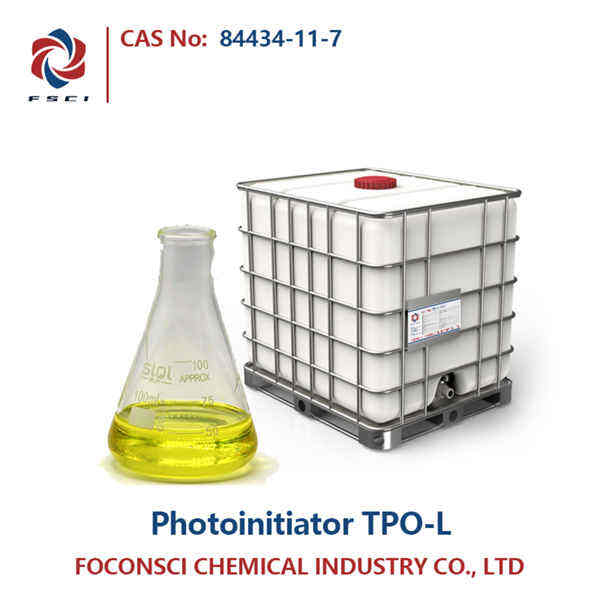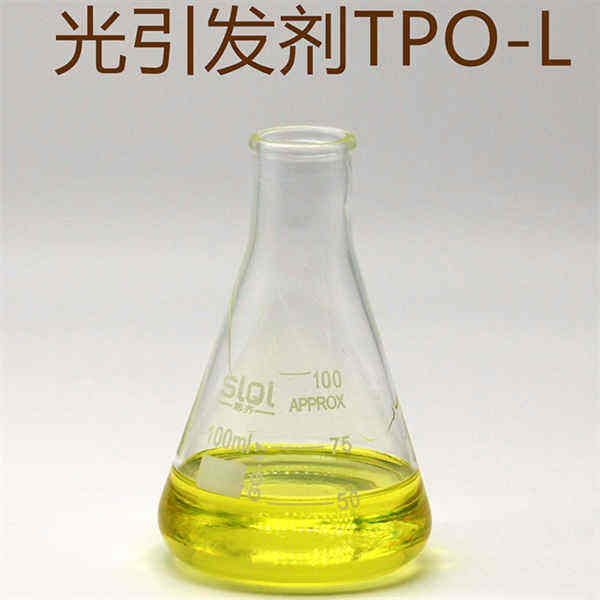No.1,Shigou Village,Chengtou Town,Zaozhuang City,Shandong Province,China.
Photoinitiator TPO-L er et specialiseret kemisk stof med en afgørende rolle i flere industrier. Dette initierer en proces kaldt foto-polymerisering. Hvorfor er polydilutioner så afgørende — denne ene trin er nødvendigt for at oprette materialer, kaldet polymerer, fra lavere ordens dele eller forbindelser. Polymerer er store molekyler, der kan være super stærke og nyttige. TPO-L bruges i forskellige felter såsom plast, farve og tøj. En af de førende producenter af høj kvalitet TPO-L til disse diverse industrier er et selskab kaldet FSCI.
Photoinitiator TPO-L er den almindelige navn på en type kemisk gruppe, der kaldes bisacylphosphine oxide. Den findes i en genkendelig form: en gul pulver. Selvom TPO-L er en kemisk klasse af TPO (Kemisk formel: C22H21O2P) Er denne unikke kemiske stof ekstremt værdifuld, fordi det kan initiere processen af foto-polymerisering, når det udsættes for lys. I tilfælde som dette, når TPO-L aktiveres af lys, kan det knytte små dele af kemi sammen for at give anledning til større, mere kraftfulde polymerer. Denne proces er afgørende for at producere en lang række produkter, herunder coatings, adhesiver, plastikker og farver.
[042 ]: Hvad er TPO-L og hvorfor er det vigtigt? >>>TPO-L har en meget specifik struktur, der har en meget særlig funktion i at det hjælper med at lave meget stærke polymerer. Dets molekylarmasse er 348.37 g/mol, hvilket er et mål for "vægten" af et mol af molekyler. TPO-L har en smeltpunkt på ca. 128 - 129°C, og det indeholder fire elementer — kulstof, hydrogen, oxygen og fosfor. TPO-L—når det udsættes for stråling, og især UV-lys—brydes ned i mindre, reaktive dele, eller radikaler. Disse radikaler initierer polymeriseringsprocessen ved at reagere med andre forbindelser for at skabe lange kædepolymerer.

TPO-L — høj kvalitet af polymeret inden for materialets produktion. Disse tøffe materialer bruges til fremstilling af en lang række produkter, fra coatings og lim til plastikker og farver. Den nedbrydning af TPO-L til radikale produkter initierer en kedje-polymerisation, der resulterer i opbygningen af tætte og varige polymere. Derfor bruges og anvendes TPO-L inden for mange forskellige industrier såsom automobil (biler), elektronik (apparater), tryk (f.eks. bøger, emballage), emballage (f.eks. kartoner, beholdere). TPO-L's unikke egenskaber gør det til et byggeklodsblok for mange af de ting vi bruger i vores hverdag.

TPO-L er den mest almindeligt brugte resin i produktionindustrien, da det er et vigtigt komponent i fremstillingen af mange produkter. TPO-L anvendes bredt i coatingsektoren til at danne højydelsesbeskyttende coatings på forskellige underlag, herunder metal, træ og plastik. Disse fungerer også som beskyttende lag/coatings for overflader og giver samtidig en behagelig visuel tiltrækningskraft. I plastikbranchen hjælper TPO-L med at fremstille forskellige typer plastik med nogle specielle egenskaber. Plastikken syntetiseret ved hjælp af TPO-L har f.eks. meget stor styrke, er gennemsigtig og udviser varmebestandighed. I trykkeriindustrien producerer TPO-L specielle tinter kaldt lys-hardnende tinter. Disse lysaktiverede tinter hardner hurtigt, hvilket gør dem ideelle til trykning på emballage-materialer, etiketter og tekstiler.

Ligesom med alle kemikalier har TPO-L fordele og ulemper, og disse skal overvejes før beslutningen om at bruge det træffes. En af de vigtigste fordele ved TPO-L er, at det ved lysstimulering kan forårsage en polymeriseringsproces. Denne proces giver anledning til høj kvalitet, stærke og varige materialer, der er grundlæggende for den store fleks af varer. Det bedste ved TPO-L er, at det er let at håndtere og kan integreres i en række produktionssammenhange med minimal ulejlighed. Men TPO-L har også nogle ulemper. Da det er lysafhængigt, kan det kun bruges i processer, der kræver lys. Det betyder, at det ikke er egnet til enhver situation. Desuden kan TPO-L irritere ved indånding eller indtagelse, hvilket er årsagen til, at det anbefales at være i en passende og sikker miljø under brugen af TPO-L.